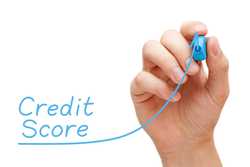Bankruptcy: How It Works, Types, and Consequences

Our evaluations and opinions are not influenced by our advertising relationships, but we may earn a commission from our partners’ links. This content is created by TIME Stamped, under TIME’s direction and produced in accordance with TIME’s editorial guidelines and overseen by TIME’s editorial staff. Learn more about it.
Under the right circumstances, bankruptcy protection can help people and businesses work their way through unmanageable financial obligations. Depending on the type of bankruptcy they pursue, debts may be forgiven or reorganized in bankruptcy court. There are several variations available to individuals, the focus of this article. Which one may be appropriate is dictated by the filer’s liabilities, assets, income, and ultimate goals.
While bankruptcy can offer much needed relief, it also has significant downsides. To decide if bankruptcy is worth pursuing, you need to know the different types, how each works, and the implications of each choice for your future financial life.
There are some debts that you cannot remove, no matter which type of bankruptcy you file. These include:
There are a number of different bankruptcy chapters in the United States, and not all are developed for consumers. For example, a city or town may file for Chapter 9, farmers and people in the fishing industry may use Chapter 12, and Chapter 15 is for debtors involved in more than one country. Individuals and certain businesses can take advantage of three different types of bankruptcy.
Chapter 7 is the most common form of personal bankruptcy, and there is a good reason for this. It’s relatively straightforward and allows eligible filers to discharge most, if not all, of their unsecured debts—including credit card balances, personal loans, collection accounts, and medical bills.
If you are struggling to meet your basic expenses and do not have any valuable property that your creditors can claim, this may be the right type of bankruptcy for you. There is no specific limitation on how much you can discharge, though you do have to demonstrate that you cannot repay your balances.
Chapter 7 bankruptcy can be an effective way to restart your financial life, as the money you were paying your creditors can be applied to your household expenses and used to satisfy debts you couldn’t discharge. The cost to file it and go through the proceedings is minimal compared with other chapters.
Chapter 13 is a reorganization bankruptcy that allows you to pay a wide variety of debts, including those that are disallowed in a Chapter 7. However, it is more complex and expensive than Chapter 7.The length of the payment plan depends on your gross income. It’s three years if you earn less than the median income for your state and five years if your income is higher. You make a single payment on either a biweekly or monthly basis to the trustee, who distributes it to your creditors.
There are a number of compelling benefits to a Chapter 13 bankruptcy. The payment is based on your budget, so it can be significantly less than you are currently paying. Because interest stops accruing on dischargeable accounts (such as credit cards and personal loans), you could end up paying a lot less than you would on your own.
If you’re a homeowner facing foreclosure due to missed payments, you can bring the mortgage back into good standing by including your past-due loan payments in the bankruptcy. Unsecured debt that remains after that time frame is usually discharged.
Not everyone can file for Chapter 13. In addition to proving that you can handle your payments, you can't owe more than $1,184,200 in secured debt or $394,725 in unsecured debt.
Chapter 11 bankruptcies are generally used by businesses that need to reorganize their debts so they can remain in operation. Individuals can also use it, however, to repay their creditors in court. Unlike Chapter 13, there are no limitations on the amount of debt a person owes, either on secured or unsecured accounts, nor are there income constraints.
Although a Chapter 11 does force creditors into accepting payment plans, the process is very complicated, which also makes it the most costly for individuals. It’s most often used by businesses that can afford the legal costs.
All bankruptcies are legal proceedings. After deciding upon the type of bankruptcy, you file the paperwork to start the process. You will need to complete a bankruptcy credit counseling course before you file. Although you can file without an attorney, many consumers employ the help of a lawyer, especially with the more complicated types, such as chapters 13 and 11.
Once your creditors receive notice that you have filed, an automatic stay goes into place, which puts them on hold until the next step. This means that phone calls and letters from your creditors will stop.
A trustee will review your case and make sure all the paperwork is correct. A “meeting of creditors” will be arranged at which creditors can ask questions and dispute the discharge, though typically most do not attend. If there are secured debts, how you will handle them will also be discussed.
If you are filing for Chapter 7 and have nonexempt property (such as expensive antiques and jewelry), you must surrender it to your creditors. In the event you are entering into a payment plan with a Chapter 13 or 11 bankruptcy, you will pay your creditors through the courts. After you have completed your plan, remaining debts that are eligible for discharge will be forgiven.
However, before receiving discharge of your debt, you will need to complete a debtor education program. Only then will you receive the discharge and enjoy your fresh start.
Bankruptcy should only be explored after you have considered alternative ways to handle your financial obligations. These include:
When you file for bankruptcy, you are showing that you cannot pay your creditors as agreed. This can have an impact on your future.
Bankruptcy is not always the best solution for resolving debt. Sometimes it can be avoided by exploring alternatives, such as:
As you go through the bankruptcy process, even if you are in the exploratory stage, you will come across certain terms that may not be immediately familiar. These include:
U.S. bankruptcy laws are very powerful. When you can't repay your balances under normal circumstances, there may be a bankruptcy type that will offer you much needed relief, either by allowing you to discharge your debts or rearrange them so you can pay over time. However, in almost all situations bankruptcy should be your last option because it comes with so many negative consequences.
Bankruptcy can result in loss of property—including real estate, vehicles, jewelry, antique furnishings, and more. As noted earlier, it can stay on your record for seven to 10 years, significantly hurting your credit. Impacts can include (1) preventing you from getting a mortgage and other types of loans for a number of years after you file or (2) raising the interest rates and fees on loans that you can get, as well as making other loan terms less favorable.
Any refund that results from income that you earned after you filed for bankruptcy is yours to keep.
You do not lose property in a Chapter 13 or 11 bankruptcy, but you can with a Chapter 7. Federal and state law determines which assets are exempt. You will usually get to keep such things as your primary vehicle, personal and household items, home, wages, benefits, and retirement accounts.
The information presented here is created by TIME Stamped and overseen by TIME editorial staff. To learn more, see our About Us page.



